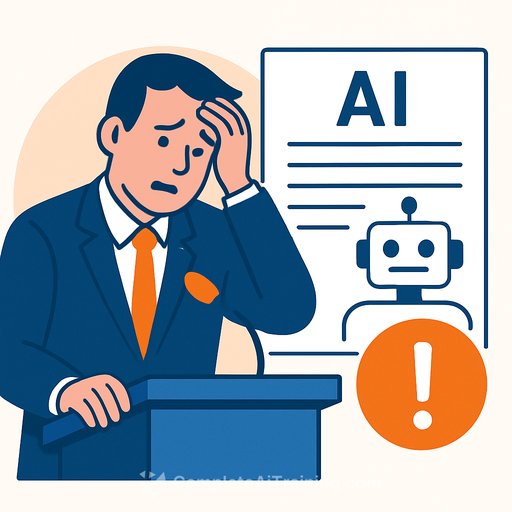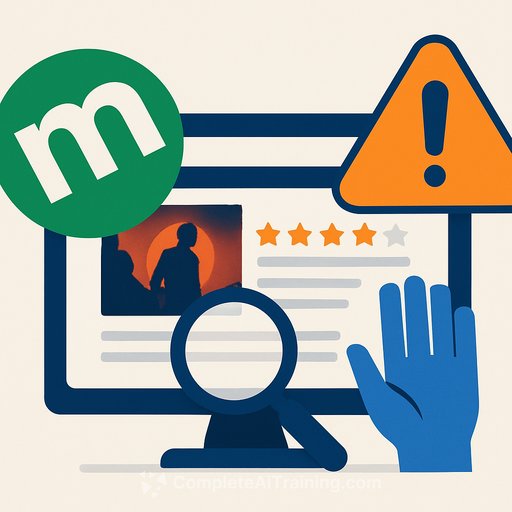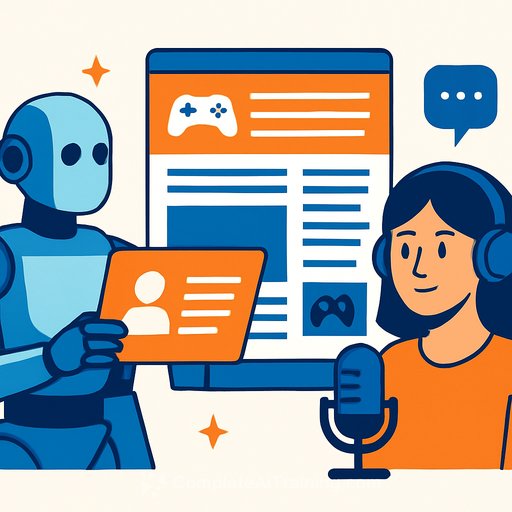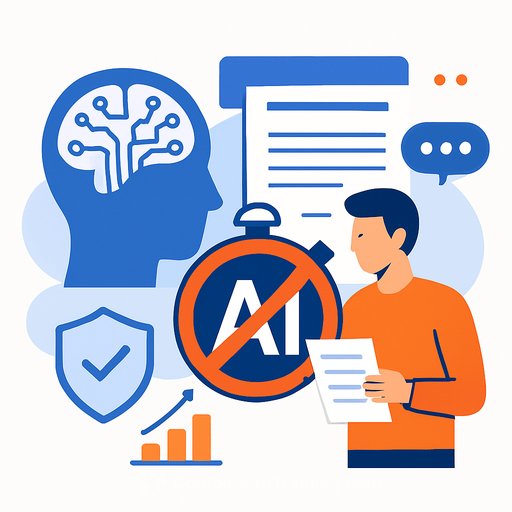Robot writer: Premier grilled on AI role in drafting signature legislation - what it means for working writers
Australia just had a moment every writer should pay attention to. Premier Jeremy Rockliff blamed the omission of a key gender document from the state budget on post-election "shenanigans," and acknowledged draft legislation may have been written by AI.
That's not a niche political story. It's a signal. If AI can ghostwrite parts of the law, your clients, editors, and readers will start asking who (or what) wrote the words they're trusting.
What happened, briefly
The Premier faced questions about the missing gender document and admitted AI may have helped draft legislation. The issue isn't just the tool-it's the lack of clarity on authorship, review, and accountability.
For writers, that's the headline: trust breaks when the chain of custody for words is unclear.
Why this matters if you write for a living
- Credibility: Readers assume a human chose every word with intent. If AI touched the work, they expect disclosure and strong editorial control.
- Liability: Incorrect claims, biased language, or missing context can become your problem if there's no audit trail.
- Process: Teams need rules. Without them, you get confusion, missed documents, and public backpedaling.
A practical AI policy you can adopt today
- Declare AI use: Internally by default. Externally when it affects substance, accuracy, or attribution.
- Human in the loop: A qualified editor signs off on every AI-assisted draft.
- Source-first writing: No claims without citations you personally checked.
- Data protection: Never paste confidential or client-sensitive info into public tools.
- Version control: Save prompts, model names, and major revisions for auditability.
- Bias and inclusion check: Run a pass for stereotypes, omissions, and loaded framing.
- Legal pass: For regulated topics, have a specialist review before publishing.
A clean AI-assisted workflow that keeps quality high
- Brief: Define the audience, goal, and must-include points. Note any red lines.
- Outline: You structure the argument. Don't outsource thinking.
- Research: Collect sources and quotes. Verify before drafting.
- Draft: Use AI for first-pass language, examples, and alternatives-guided by your outline.
- Verify: Check every claim, link every stat, and remove anything you can't substantiate.
- Rewrite in your voice: Tighten, add nuance, and set the tone. Then final edit for clarity and risk.
Prompts that keep you honest
- "List all factual claims in this draft and add a source beside each one."
- "Highlight anything speculative or uncertain. Explain why."
- "What important viewpoints or stakeholders might be missing here?"
- "Rewrite to reduce bias and loaded language. Show changes."
What not to outsource to AI
- Your thesis and angle. That's your job.
- Final wording on sensitive topics, legal claims, or anything that could mislead.
- Quotes, interviews, or first-hand reporting.
- Approval. A human owns the byline, the risk, and the outcome.
Tooling that helps without tripping you up
- Use suggestion mode and diff tools to see exactly what changed.
- Maintain a simple log: date, model, prompt summary, key edits, sources.
- Run a bias/inclusion checklist before final sign-off.
- Ignore "AI detection" gimmicks; they're unreliable. Focus on verification and process.
If you manage a writing team
- Publish a one-page AI policy and update it quarterly.
- Provide a standard disclosure line for AI assistance when used.
- Do random audits: pick a piece, trace sources, check the log, and fix the workflow if gaps appear.
- Create an incident playbook: how to correct, disclose, and prevent repeats.
Why governments and brands are tightening rules
Regulators are moving fast, especially on transparency, data use, and accountability. If your writing touches policy, finance, health, or safety, expect stricter reviews and clearer disclosures.
Bottom line
AI can help you draft faster. It can't take responsibility. Treat it like a junior assistant with good ideas and bad instincts. You set the brief, you verify the facts, you sign the work.
Further learning for writers using AI
Your membership also unlocks:





